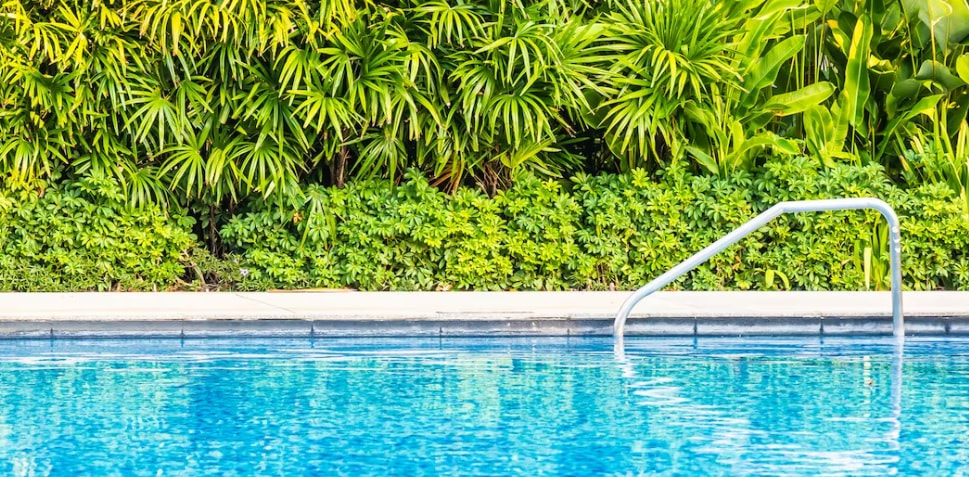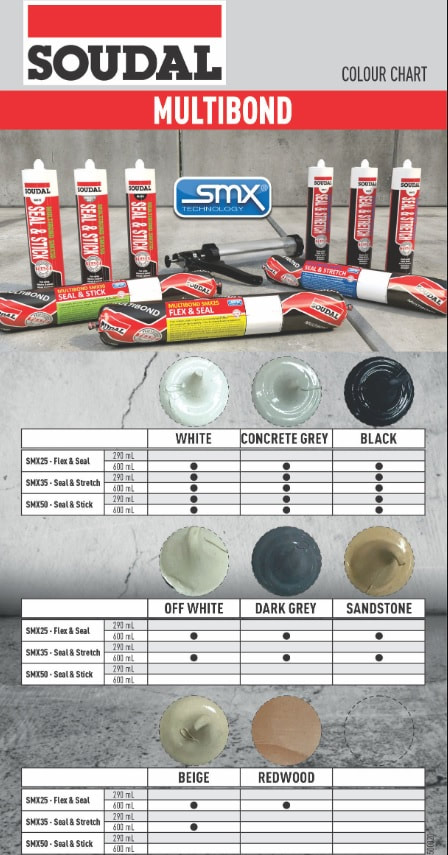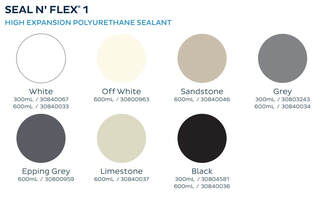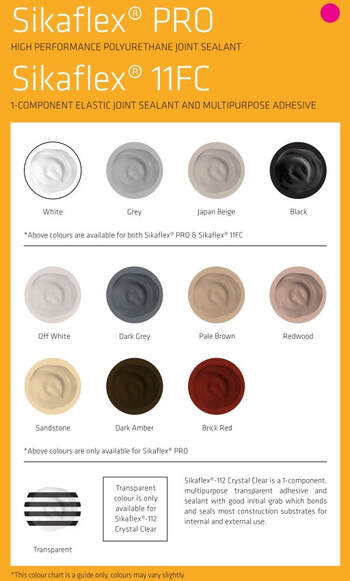|
Expansion Joint Foam
Foam Joint Fillers - Plain or Adhesive backed 50mm w Zip 10mm x 25m 75mm w Zip 10mm x 25m 100mm w Zip 10mm x 25m 125mm w Zip 10mm x 25m 150mm w Zip 10mm x 25m 200mm w Zip 10mm x 25m 250mm w Zip 10mm x 25m 300mm w Zip 10mm x 25m Adhesives/Sealants Soudal Multibond SMX25 (this range has several colours) Soudal Multibond SMX35 (grey, white and black) Soudal Multibond SMX50 (grey, white and black) Swimming Pool Specific Silicone It is important to use a silicone that indicates it is suitable for use in swimming pools. Some pool chemicals degrade standard silicone very quickly. Regardless of being safe for pool water or not, acetic curing silicone should not be used on metallic surfaces or alkaline surfaces such as concrete, plaster and brick. Waterproofing Fish Ponds & Water Features It is important for fish ponds that you use a waterproofing material that is specifically identified as safe for fish, or potable water (which means safe for drinking / human consumption which is a certifiable standard (AS/NZS 4020:2018). Drizoro Maxseal Flex Mapei Mapelastic Smart Waterproofing Swimming Pools *BEWARE* windows in pool trend - best avoided Concrete Sealers - Single Part There are two main types of concrete sealers - penetrating sealers and surface sealers. They are usually designed to make the concrete water repellent, and may offer protection from chemicals and resistance to staining agents. Penetrating sealers work by reducing the porosity of the concrete via the delivery of microscopic solids via a solvent. This system generally does not alter the appearance of the substrate, and because it does not sit on the surface of the concrete does not significantly alter the slip resistance of the dry substrate. Surface sealers are designed to bond tenaciously to the concrete and form a physical barrier between liquids and the substrate. These sealers can make the concrete appear significantly shinier and will reduce the slip resistance of the dry substrate. Slip Resistant additive can be added in suspension when the product is applied. If you do not want the appearance of the concrete to change, penetrating sealers are likely to produce the best result. Penetrating sealers are more expensive, and it should be noted that in either case, you still need to clean off spills and surface contaminants if you want the surface to appear and remain clean. Options include; Sealco Floseal - a penetrating concrete and masonry sealer Hardtop ASB - a solvent borne acrylic surface sealer |
Website by Envisionet



